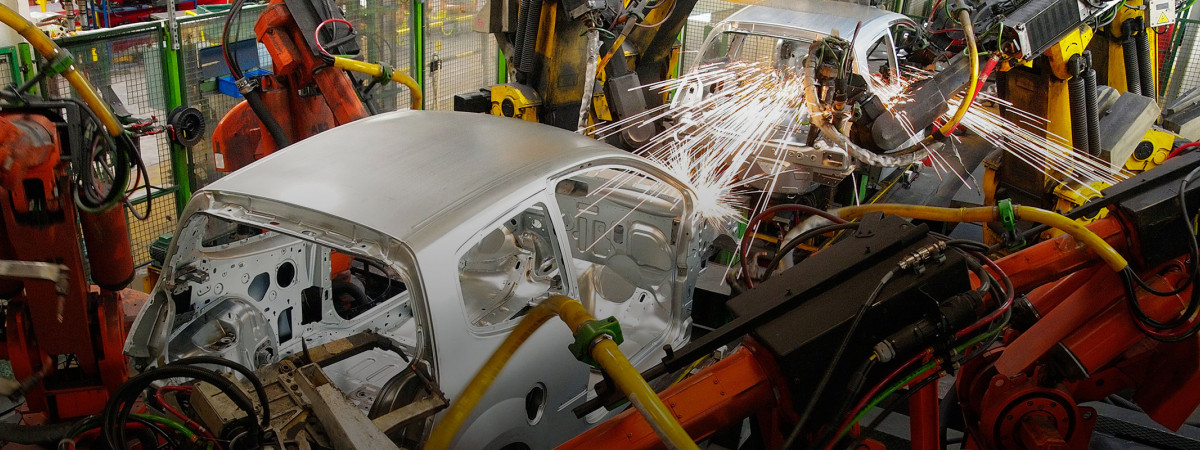
Authors
-
Jessica Davis Pluess
Former Manager, BSR
It is being called the “second machine age”: An era when work, home, and leisure are automated, networked, and digitized at an unprecedented scale. Already, wireless applications can do nearly everything, from finding the fastest route, to diagnosing and monitoring chronic diseases. Robots can perform tasks as mundane as housecleaning and as detailed as car assembly, and 3D printing technologies can create jet engine parts, gourmet chocolate, and much in between.
Technology is getting smarter, taking on cognitive abilities and tasks once thought the sole domain of people. In the last few years, declining costs and greater technological sophistication has made automation more accessible to large and small companies alike, increasing the speed and scale of technology uptake.
As methods for the production of goods and delivery of services rapidly change, there are many implications for labor markets around the world. These changes are having significant impacts on job availability and quality in the global economy—eliminating certain jobs while creating new ones, and demanding new skills from workforces worldwide. Just as these forces can be powerful drivers of economic opportunity and improved well-being, they can also present a host of risks for people and business. Many experts cite labor’s declining share of GDP, structural unemployment, and rising economic inequality as indicators that a transformation in the labor market is already underway, and that technology is a key contributor.
Today, we are launching a new issue brief, “Good Jobs in the Age of Automation,” which provides emerging analysis on the challenges and opportunities for business to create and preserve good jobs during an era of rapid technological change. With this brief, we seek to initiate a dialogue with companies and partners on how to embrace the inevitable age of automation in a way that benefits a larger segment of society and creates value for business. This means not only mitigating the negative impacts of technology, but also harnessing it as a powerful driver of economic opportunity and improved well-being.
This brief is part of a research and engagement platform for BSR’s Inclusive Economy initiative. That platform will investigate how major technological forces will affect employment in the production of goods that have traditionally relied upon large pools of low-skilled labor in companies’ own operations and their supply chains. We believe it is crucial to approach this wave of innovation in a fundamentally different way from the outsourcing and contract manufacturing growth that gained unstoppable momentum in the 1990s without fully considering the social and environmental impacts. We see three priority areas of investigation:
- How automation is changing production: This includes understanding the nature and pace of technological change and adoption, policy and incentive structures that are supporting adoption, and how technological changes are reshaping (or could reshape) production and sourcing strategies.
- How automation is affecting the creation of good jobs and worker well-being: Drawing on BSR’s history of promoting fair employment conditions, we will seek to understand the potential impact of automation trends on the well-being of the current workforce and the creation of good jobs in the future.
- How business and labor can capture the opportunities and mitigate the risks created by automation: This includes identifying ways that companies can use their assets, including their policies, investments, and influence, to embrace the inevitable age of automation in a way that creates more opportunity and benefits for more people and value for business.
This second machine age is sure to cause major disruptions, but just as it could erode many of the last century’s economic gains, it could also strengthen them. Preparing for a future that is quickly becoming today’s reality is essential to building an inclusive economy and creating value for business.
To join the conversation about Business Leadership for an Inclusive Economy, follow #BSRinclusion on Twitter.
BSR’s latest sustainability insights and events straight to your inbox.
Let’s talk about how BSR can help you to transform your business and achieve your sustainability goals.